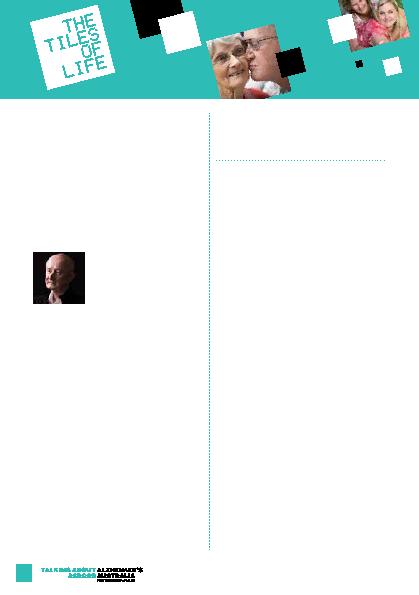
older samples. Since sleep and circadian
disturbance may be a prodromal feature
of many neurodegenerative diseases, this
presentation will examine recent sleep and
circadian research conducted in healthy
ageing and mild cognitive impairment. Finally,
pharmacological and non-pharmacological
intervention options for sleep-wake disturbance
will be examined, with suggestions for clinical
practice.
Anthropology in 1957 and
subsequently completed
training in Internal Medicine
at Lidcombe Hospital in 1966,
Geriatric Medicine at the
at the Mayo Clinic in 1972. He was Professor
of Geriatric Medicine, University of Sydney,
from 1985 to 1999 and was awarded an Order
of Australia for services to Geriatric Medicine
in 1988.
Principal Research Fellow at Neuroscience
Research Australia and Conjoint Professor
of Geriatric Medicine at POW Hospital and
UNSW. He has written over 150 papers and
20 book chapters on brain ageing, dementia,
Alzheimer's and Lewy body diseases.
Medicine, Neurology and Traumatic Brain
Injury and from 2000 he has developed,
with Gail Daylight, an integrated Aboriginal
Community Health Service with the La
Perouse community. From 2007 he has
carried out NHMRC funded and AHMRC
approved research in Aboriginal health, ageing
and dementia with Aboriginal community
partners across NSW. He is currently working
Project, to translate this research into capacity
building with Aboriginal partner organisations.
Draper B, Bennett H
is increasing rapidly yet little is known about
dementia in this population. The KICA Study
(WA) noted a high prevalence of dementia in
remote Aboriginal people. KGOWS aimed to
determine the prevalence and associations of
dementia in NSW urban Aboriginal settings
where the majority reside.
Aboriginal communities to undertake a
complete census of all resident Aboriginal
people aged 60 years and over (N=555).
This was followed by a survey of the health,
cognitive function, wellbeing, life history and
service use in consenting participants (N=336;
61%; median age = 66 years). Three cognitive
screens were used and "gold standard" clinical
consensus determinations of dementia and
cognition made following (blind) geriatrician
assessment in the field.
prevalence was 13.4% (95% CI 10.2%,
17.5%), more than twice the non-Indigenous
rate, with Alzheimer's dementia most common
(56% of cases), then vascular dementia (23%)
and dementia due to head trauma (12%).
Alcohol related dementia was uncommon.
The prevalence of mild cognitive impairment
was also high. Standardised screening tests